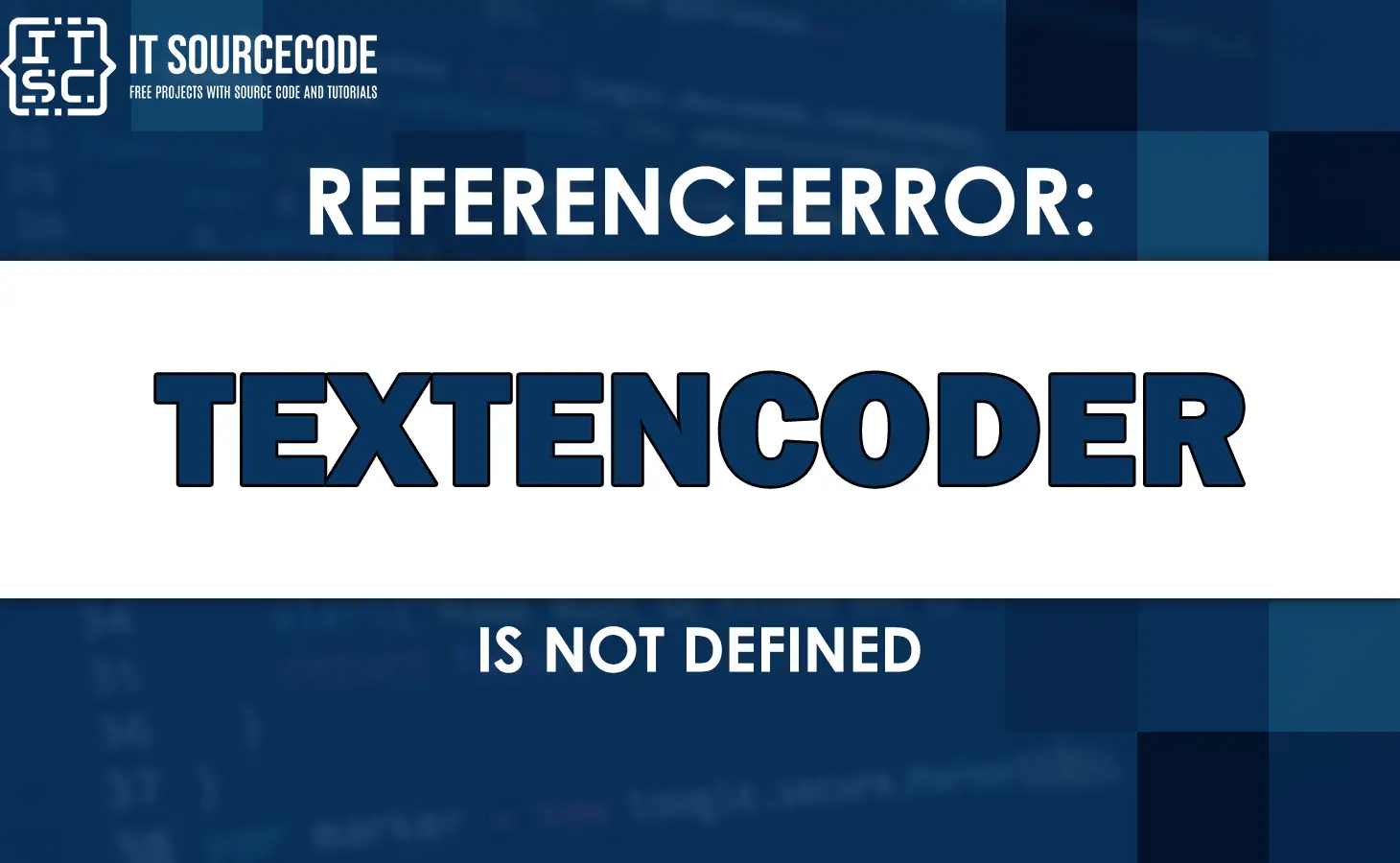This article focuses on the “Referenceerror: textencoder is not defined” error in JavaScript, which is commonly encountered in web development.
Specifically, it addresses why this error occurs and provides practical solutions to resolve it.
Why referenceerror: textencoder is not defined occur?
The “ReferenceError: TextEncoder is not defined” error occurs when you’re trying to use the TextEncoder object, but it’s not recognized or available in the current environment or browser.
The TextEncoder is a built-in object in JavaScript that allows you to encode strings into byte sequences using various encodings, such as UTF-8.
However, it’s not universally supported in all JavaScript environments, especially in older browsers or Node.js versions.
Example of referenceerror
Here’s an example program that could trigger the “ReferenceError: TextEncoder is not defined” error:
// This example assumes you are running it in an environment that does not support TextEncoder
// Create a new TextEncoder object
const encoder = new TextEncoder();
// Define a string to encode
const text = 'Hello, world!';
// Encode the string using UTF-8
const encodedText = encoder.encode(text);
console.log(encodedText);
How to fix referenceerror: textencoder is not defined?
To fix the “ReferenceError: TextEncoder is not defined” error, you can use a polyfill or alternative encoding methods.
Here are a couple of solutions with examples:
Solution 1: Using a Polyfill
A polyfill replicates the functionality of a newer feature in older environments. You can use a polyfill to add support for TextEncoder in environments where it’s not available.
Here’s an example using the text-encoding polyfill:
First, install the text-encoding package using a package manager like npm:
npm install text-encoding
Then, in your JavaScript code, import the TextEncoder from the polyfill and use it as follows:
import { TextEncoder } from 'text-encoding';
const encoder = new TextEncoder();
const text = 'Hello, world!';
const encodedText = encoder.encode(text);
console.log(encodedText);
By importing the TextEncoder from the text-encoding package, you guarantee the availability of the TextEncoder object, even in environments that do not have built-in support for it.
Solution 2: Using an Alternative Encoding Method (Node.js)
In this case, if you’re running JavaScript code in a Node.js environment, you can use an alternative encoding method, such as the Buffer object, to encode strings.
Here’s an example:
const text = 'Hello, world!';
const encodedText = Buffer.from(text, 'utf-8');
console.log(encodedText);
In this example, Buffer.from() is used to encode the string text using UTF-8 encoding. The resulting encoded text is stored in the encodedText variable.
Asides from this error you could also check other fixed errors on this site which might help you in resolving the issues, namely:
Conclusion
To summarize, the “ReferenceError: TextEncoder is not defined” error happens when you try to utilize the TextEncoder object in JavaScript, but it is not recognized or accessible in the present environment.
This error commonly occurs in older browsers or older versions of Node.js that lack support for the TextEncoder object.
It indicates that the JavaScript runtime or environment does not have built-in functionality for the TextEncoder.
We hope this article helped you address the issues.
Until next time! 😊

